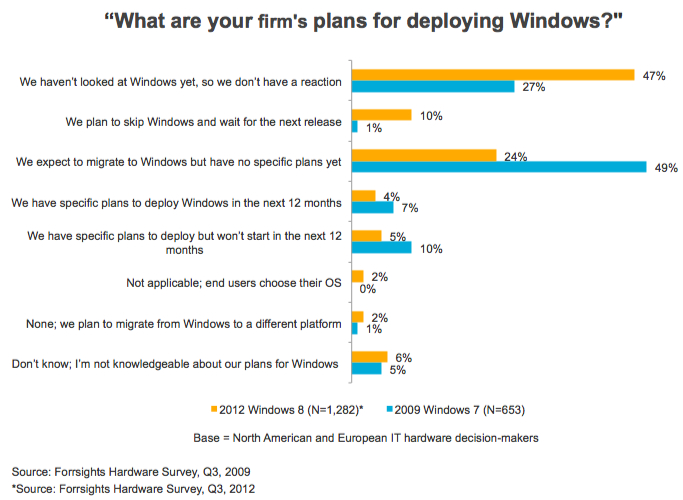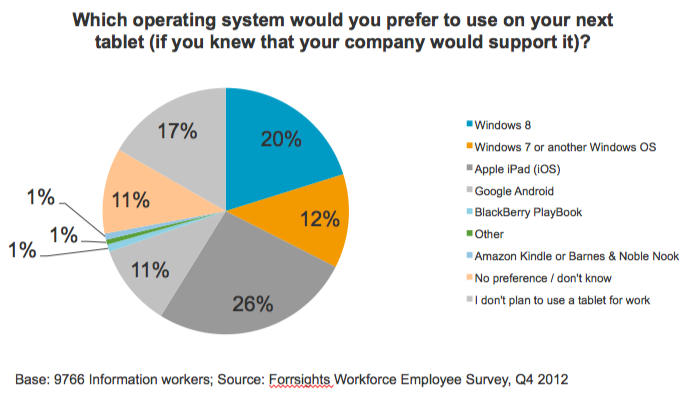By The Numbers: Is Windows 8 Dead On Arrival In The Enterprise?
With the release of Windows 8, Microsoft is in the midst of its largest marketing effort ever, hoping to reach 2.1 billion people over the next several months. Because of its lukewarm initial sales, but with new tablets and convertibles on the way, Forrester clients are understandably asking how much attention they should give it. Here's my take:
The data tells us two important things. The first is that Windows 8 is seeing roughly half of the interest from IT hardware decision-makers that Windows 7 saw at the same point in its release cycle. Only 24% of firms expect to migrate to Windows 8 but have no specific plans to do so, versus 49% for Windows 7 back in 2009. Only 5% of firms have specific plans to migrate to Windows 8 in the next 12 months, versus 10% for Windows 7 in 2009:

The second important thing that the data tells us is that Windows 8 has higher interest than we expected among employees, with a full 20% already saying that they would prefer Windows 8 on their next touchscreen tablet versus 26% for iOS. That bodes well for Windows 8's prospects for bring-your-own-device (BYOD) demand:

What It Means: Forrester does not expect enterprises to adopt Windows 8 as their primary IT standard. More on why in a future blog. But we do expect that employees will force IT to have a formal support policy for Windows 8 for employee-owned devices. Windows 8 will accelerate BYOD demand. Look for more from Benjamin Gray and yours truly in a report due out shortly.
